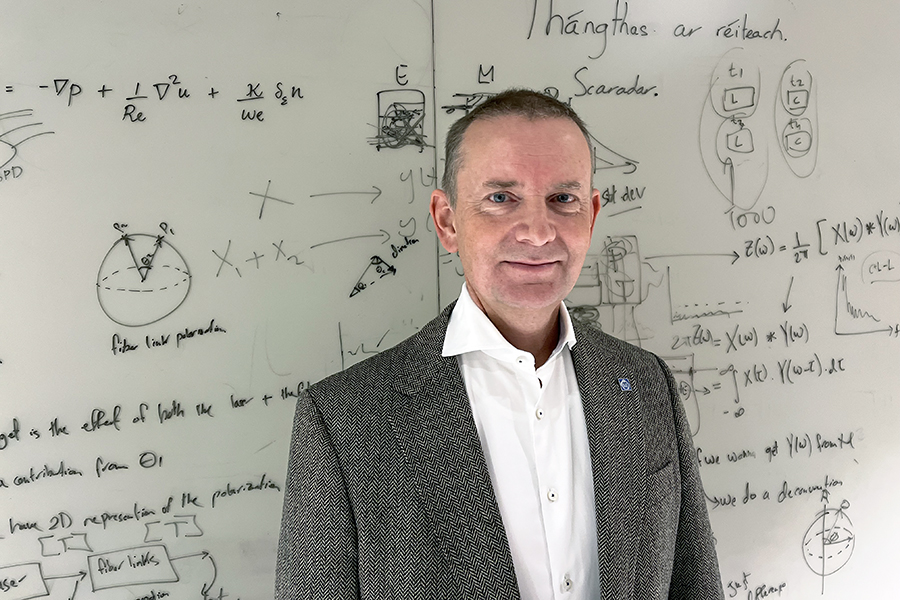New structure for doctoral programmes with efficiency and quality in focus

SCI is developing a streamlined and quality-assured structure for the doctoral programmes. The new structure will optimize resources and align with KTH's new quality system, while maintaining subject-specific support for doctoral students. "The idea is to link the programmes more closely to the departments and to strengthen the community within the doctoral subjects by introducing research subject coordinators.", says Oscar Tjernberg, Deputy Head of School and responsible Director of Third Cycle Education.
What motivated the proposal for a new structure for doctoral education?
"The number of doctoral students at KTH has been declining for a long time, and we do not see an immediate reversal of this trend. Within the SCI School, there are also large differences in the number of doctoral students between the different programmes. At the same time, we see increased demands from doctoral students, the outside world and ourselves, not least through KTH's new quality system."
How does KTH's new quality system affect the proposed structure?
"The quality system requires follow-up and measures in courses, the study environment and supervision. Departmental management has a great deal of responsibility in these areas, and the quality system also requires that people responsible for different parts of the system have the authority to implement the necessary measures. It was natural to connect the responsibility for supervision and the study environment with the head of the department.
What was the process of designing the new structure?
"The process started with departments being asked to review their programmes and make proposals for a future programme structure. These proposals were then discussed by the School's Head of Department's Council and the School's Management. I then presented a proposal for a possible structure, which was further developed through discussions in management and the FA-PA group, which includes programme directors, doctoral student representatives and parts of the Education Office. With the help of feedback from these groups, we have now produced a more detailed proposal, which the Faculty Board has now approved."
What are the main objectives and how does the new structure achieve them?
"Our aim is to meet the demands of doctoral education in a simple and resource-efficient way. At the same time, we want to strengthen both local ownership and community by emphasising the central role of doctoral education subjects. By reducing the number of programmes, we are reducing the administrative burden and connecting them directly to departments, making it easier to meet the requirements of the quality system. Doctoral programmes will be assigned a Research Subject Officer (FoA) who will have regular contact with doctoral students. This strengthens both subject affiliation and local anchoring. In addition, the new structure allows for a dynamic management of doctoral subjects, such as discontinuing, merging or adding new subjects, without affecting the structure of the programme."
How will the new structure improve the quality of doctoral education?
"Quality monitoring will be carried out by a person within the departmental management who will also have the authority to act. Through their contact with doctoral students, subject coordinators will identify problems in progression, courses, supervision and the study environment at an early stage and signal these to the programme coordinator in the departmental management. This should lead to faster and more effective measures."
What is the role of the Research Subject Coordinator compared to the previous role of the Programme Manager?
"Subject coordinators will be responsible for ongoing contact with doctoral students within the subject, updating the eISP (electronic individual study plan) and follow-up discussions. Programme managers will have a more general role in ensuring the quality of the programme. In the new quality system, programme managers will have a new role compared to the previous one."
How will you ensure a smooth implementation of the new structure?
"In the new system, we will clarify all doctoral education processes. We hope that most of the current programe managers will move into the role of research subject coordinator to ensure a smooth transition. The aim is that supervisors will not be much affected by the change, while doctoral students will hopefully notice more subject-specific support and better feedback on quality deficiencies."
What administrative benefits can we expect in the longer term?
"The reduction in the number of programmes will reduce the administrative burden somewhat, but the biggest gain lies in the effective implementation of the quality system. It's not just about reducing the workload, it's about having a system that actually improves quality."
Why have you decided not to reduce the number of research subjects at this stage?
"Unlike the programmes, the school does not decide on the subjects. Our interpretation of this is that the management of KTH sees the subjects as central. The doctoral education subjects are also strongly linked to the identity of the faculty, and it is what is written on the doctoral students' diplomas. Therefore, we start with the programme structure, which is more of an administrative issue, and let any changes to subjects take more time. Changes within subjects may be relevant in the future, but here we want the institutions themselves to make proposals."
